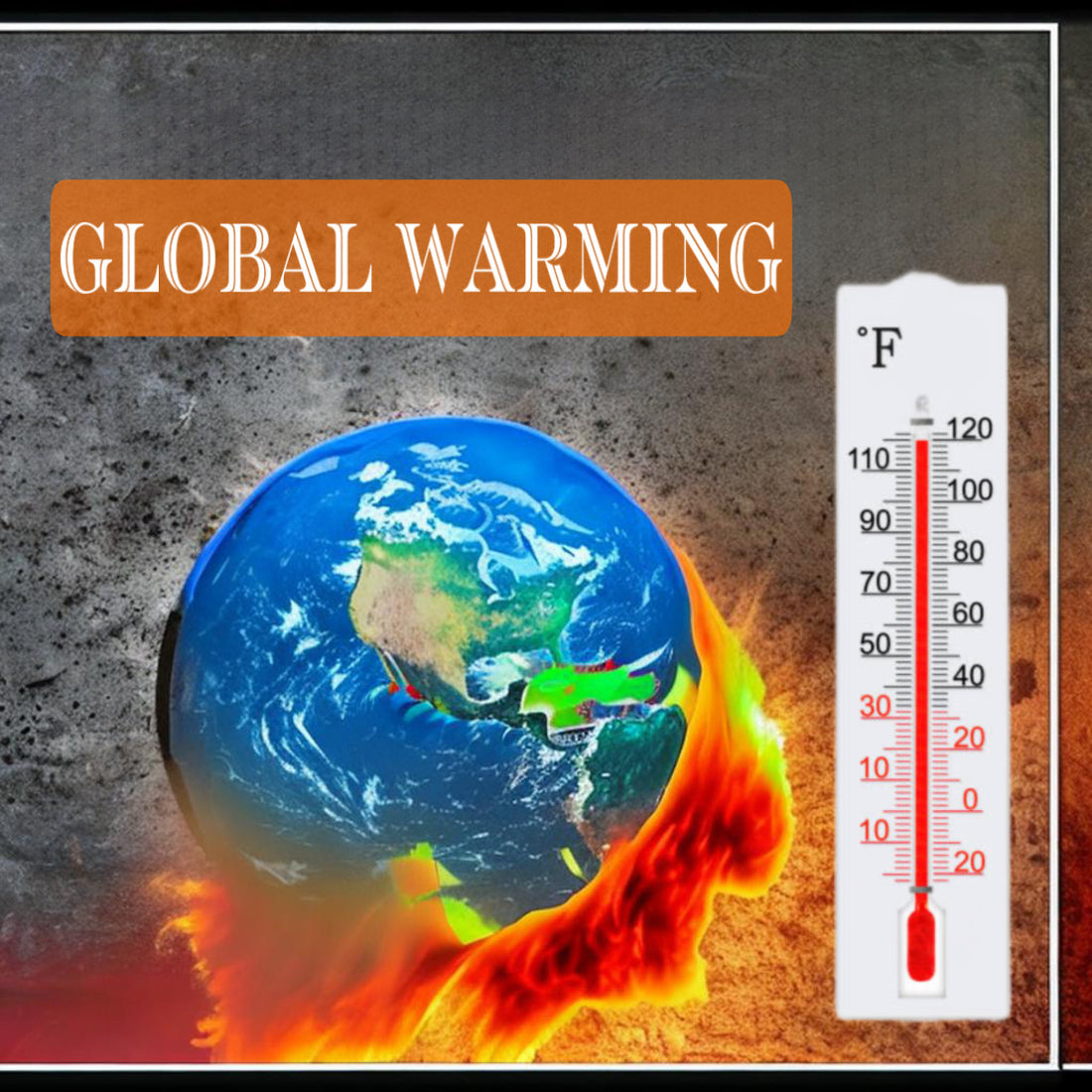Global warming is a growing concern for our planet. The rise in temperature is at an all time high which begs the question “why is is so hot?”
Global temperatures have been steadily increasing over the past few decades, with the ten warmest years on record occurring since 2005. This warming trend is attributed to human activities, such as the burning of fossil fuels and deforestation, which release greenhouse gases into the atmosphere, trapping heat and causing the Earth's temperature to rise.
One climate phenomenon that exacerbates this warming trend is El Niño. El Niño is a natural climate cycle that occurs every few years, characterized by warmer ocean temperatures in the Pacific Ocean. This warming of the ocean can have far-reaching environmental impacts around the world.
One of the most significant impacts of El Niño is the increase in heat waves. As the ocean warms, it releases heat into the atmosphere, causing temperatures to rise in regions around the world. Heat waves can have serious environmental consequences, including droughts, wildfires, and even death in vulnerable populations.
In addition to heat waves, El Niño can also cause changes in precipitation patterns. Some regions may experience heavy rainfall and flooding, while others may experience droughts, impacting agriculture and water resources.
El Niño can also have significant impacts on marine life. The warmer ocean temperatures can cause coral bleaching, which can lead to the death of entire coral reef ecosystems. It can also impact fish populations, as changes in ocean currents and temperatures can disrupt their migration patterns and breeding habits.
Overall, the increasing global temperatures and the environmental impact of the El Niño climate phenomenon highlight the urgent need for action to reduce greenhouse gas emissions and combat climate change. The future of our planet and its ecosystems depend on our willingness to take action and reduce our impact on the environment.
It is urgently necessary to look for solutions that can help reduce the effects of global warming. One such solution is carbon sequestration.
Carbon sequestration refers to the process of capturing carbon dioxide from the atmosphere and storing it in a safe place. This process is essential because carbon dioxide is a greenhouse gas that contributes to global warming. By capturing and storing it, we can reduce the amount of carbon dioxide in the atmosphere, which can contribute to lower global temperatures.
There are several ways to sequester carbon. One of the most common methods is to plant trees. Trees absorb carbon dioxide from the atmosphere during photosynthesis and store it in their trunks, leaves, and roots. Another way is to capture carbon dioxide from power plants and industrial facilities and store it underground. This process is called carbon capture and storage (CCS).
Carbon sequestration is vital to preserving the environment but the consequences go even further than that. Global warming is also affecting the economy. The rise in sea levels and severe weather conditions are causing significant damage to infrastructure, which can be costly to repair. The effects of global warming are also affecting industries such as agriculture, fisheries, and tourism, which rely on stable weather conditions.
In conclusion, global warming is a growing concern that requires immediate action. Carbon sequestration is one of many solutions which can help to preserve the environment and protect the world population. It is essential to invest in carbon sequestration technologies to ensure that we can mitigate the effects of global warming and preserve the planet for future generations.

